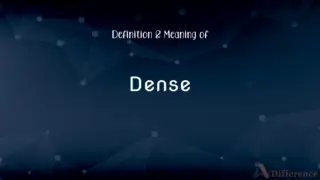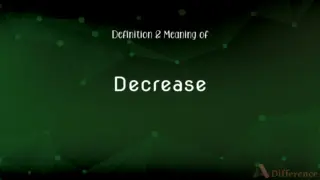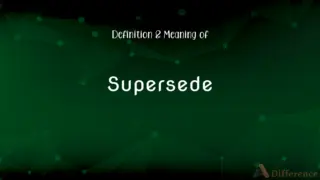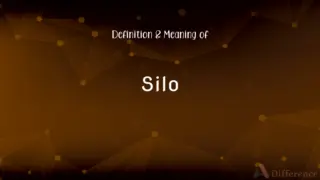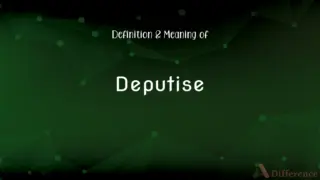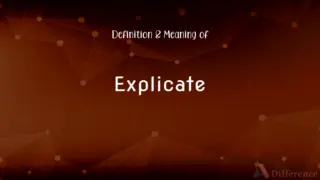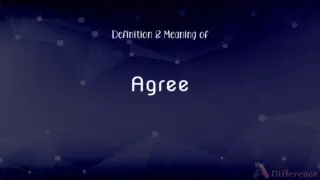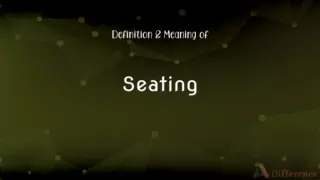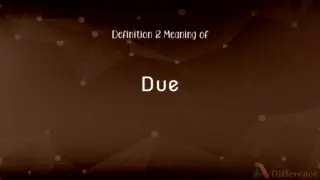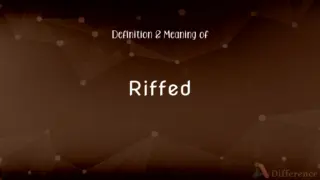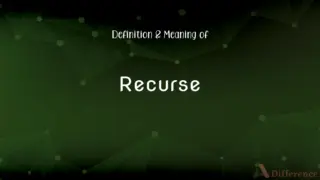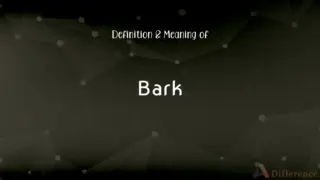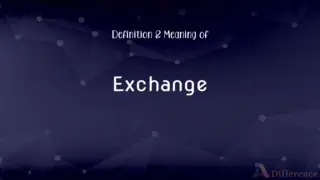Acknowledge Definition and Meaning
By Tayyaba Rehman & Urooj Arif — Updated on March 5, 2024
Acknowledge means to accept, admit, or recognize the truth or existence of something. e.g., She acknowledged her mistake and apologized.
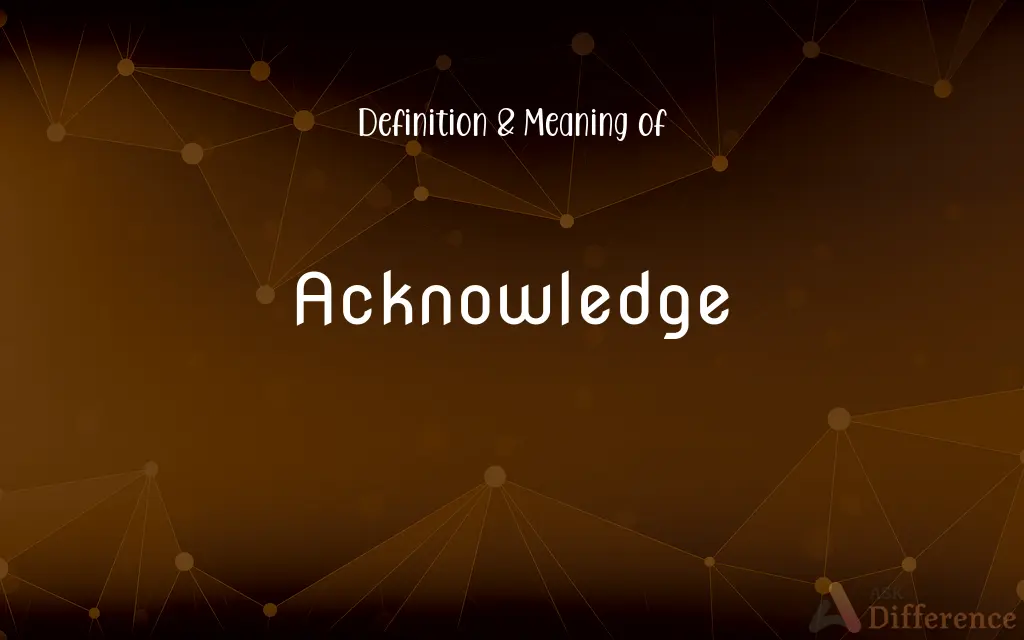
Table of Contents
Acknowledge Definitions
Admitting Something: Conceding that something is true or valid.
The author acknowledged the influence of her mentors.
Expressing Gratitude: Showing appreciation for help or a gesture.
They acknowledged the support of their friends in the acknowledgments section.
Paying Respect: Showing respect for someone's achievements or qualities.
The community acknowledged his contributions with an award.
Addressing Someone's Efforts: Noting and appreciating someone's work or contribution.
The teacher acknowledged the student's improvement.
Confirming Receipt: Indicating that something has been received.
The office acknowledged receipt of the application.
Recognizing Someone's Presence: Noting or greeting someone upon their arrival or presence.
She acknowledged each guest as they arrived.
Citing Sources: Giving credit to the sources used in a work.
Scholars must acknowledge their sources in academic writing.
Recognition of Facts: Accepting the truth or reality of a situation.
He acknowledged the need for change in the organization.
Validating Feelings: Recognizing and affirming someone's feelings or emotions.
It's important to acknowledge your child's fears.
To admit the existence or truth of
The doctors acknowledged that the treatment had not been successful.
To express recognition of; make notice of
"When he saw me acknowledge him, he smiled as if we were dear friends" (Angela Patrinos).
To express gratitude or appreciation for or to
Acknowledged the contributions of the volunteers.
Acknowledged her editor in the preface to the book.
To report the receipt of (something) to the sender or giver
Acknowledge a letter.
(Law) To accept or certify as legally binding
Acknowledge a deed of ownership.
(transitive) To admit the knowledge of; to recognize as a fact or truth; to declare one's belief in
To acknowledge the being of a god
(transitive) To own or recognize in a particular quality, character or relationship; to admit the claims or authority of; to give recognition to.
(transitive) To be grateful of (e.g. a benefit or a favour)
To acknowledge a favor
(transitive) To report (the receipt of a message to its sender).
This is to acknowledge your kind invitation to participate in the upcoming debate.
(transitive) To own as genuine or valid; to assent to (a legal instrument) to give it validity; to avow or admit in legal form.
To own or admit the knowledge of; to recognize as a fact or truth; to declare one's belief in; as, to acknowledge the being of a God.
I acknowledge my transgressions.
For ends generally acknowledged to be good.
To own or recognize in a particular character or relationship; to admit the claims or authority of; to give recognition to.
In all thy ways acknowledge Him.
By my soul, I'll ne'er acknowledge thee.
To own with gratitude or as a benefit or an obligation; as, to acknowledge a favor, the receipt of a letter.
They his gifts acknowledged none.
To own as genuine; to assent to, as a legal instrument, to give it validity; to avow or admit in legal form; as, to acknowledge a deed.
Declare to be true or admit the existence or reality or truth of;
He admitted his errors
She acknowledged that she might have forgotten
Report the receipt of;
The program committee acknowledged the submission of the authors of the paper
Express recognition of the presence or existence of, or acquaintance with;
He never acknowledges his colleagues when they run into him in the hallway
She acknowledged his complement with a smile
It is important to acknowledge the work of others in one's own writing
Express obligation, thanks, or gratitude for;
We must acknowledge the kindness she showed towards us
Accept as legally binding and valid;
Acknowledge the deed
Accept (someone) to be what is claimed or accept his power and authority;
The Crown Prince was acknowledged as the true heir to the throne
We do not recognize your gods
Accepting Responsibility: Taking responsibility for one's actions or decisions.
The company acknowledged its role in the environmental issue.
Acknowledge Snonyms
Recognize
To accept or admit the existence or truth of.
The government recognized the need for reform.
Concede
To admit that something is true or valid after first denying or resisting it.
She conceded that she had been wrong.
Affirm
To state as a fact; assert strongly and publicly.
She affirmed her commitment to the project.
Accept
Consent to receive or undertake.
He accepted the award on behalf of the team.
Confess
To admit or acknowledge something reluctantly, typically because one feels slightly ashamed or embarrassed.
He confessed his feelings to her.
Own up
To confess or admit to having done something wrong or embarrassing.
The child owned up to breaking the vase.
Declare
To make known clearly or officially.
She declared her intention to run for office.
Avow
To assert or confess openly.
He avowed that he was the sole decision-maker.
Admit
To confess to be true or to be the case.
He admitted his mistakes.
Grant
To admit or agree to; to acknowledge the validity of.
The judge granted that the defendant had been cooperative.
Acknowledge Idioms & Phrases
Acknowledge a debt of gratitude
To express thanks or appreciation to someone for their help or support.
He always acknowledged a debt of gratitude to his mentor for the guidance and opportunities provided.
Acknowledge a point
To concede that someone else's argument or observation is valid.
During the debate, he had to acknowledge a point made by his opponent, even though it weakened his position.
Acknowledge with thanks
A polite expression used to express gratitude for receiving something.
She ended her email with acknowledge with thanks, appreciating the prompt response to her inquiry.
Acknowledge one's roots
To recognize and accept where one comes from, including family, culture, or heritage.
In her speech, she took a moment to acknowledge her roots and thanked her grandparents for their sacrifices.
Acknowledge the hard truth
To accept an uncomfortable or difficult reality.
She finally acknowledged the hard truth that her business was not sustainable in its current form.
Acknowledge the significance
To recognize the importance or meaning of something.
The professor took time to acknowledge the significance of the discovery in the field of science.
Refuse to acknowledge
To deny the existence, validity, or truth of something.
Despite the evidence, he refused to acknowledge any wrongdoing on his part.
Acknowledge one's presence
To show recognition of someone's arrival or existence in a place.
As she entered the room, everyone quickly acknowledged her presence with a nod or a smile.
Fail to acknowledge
To ignore or not give proper recognition to someone or something that deserves it.
The company failed to acknowledge the contributions of the temporary staff during the project's success celebration.
Acknowledge the elephant in the room
To address an obvious problem or issue that everyone is avoiding talking about.
During the family meeting, he decided it was time to acknowledge the elephant in the room and discuss the will.
Acknowledge the challenge
To admit that a task or situation is difficult.
He acknowledged the challenge ahead but remained optimistic about overcoming it.
Publicly acknowledge
To give recognition or admission of something in a public manner.
The mayor publicly acknowledged the efforts of the emergency services during the natural disaster.
Acknowledge the applause
To show appreciation for the audience's clapping or praise, typically after a performance.
After her piano recital, she stood up to acknowledge the applause with a gracious bow.
Acknowledge receipt
To confirm that something has been received, often used in formal communications.
Please acknowledge receipt of this letter to confirm that it has arrived.
Acknowledge a contribution
To give credit to someone for their part in achieving something.
The author used the preface of the book to acknowledge the contributions of his research team.
Acknowledge a mistake
To admit to having made an error.
The CEO acknowledged a mistake in the company's strategy and outlined steps to correct it.
Acknowledge the past
To accept and recognize the history or previous occurrences.
The community event was an opportunity to acknowledge the past and discuss ways to move forward together.
Acknowledge the winner
To give recognition to someone for winning a competition or achieving success.
After the race, the organizers took a moment to acknowledge the winner with a trophy and applause.
Silently acknowledge
To recognize or admit something internally without expressing it outwardly.
She silently acknowledged her competitor's skill, even though she wasn't ready to voice it publicly.
Begrudgingly acknowledge
To admit something or give recognition unwillingly.
She begrudgingly acknowledged that her opponent's argument had some merit.
Acknowledge Example Sentences
She raised her hand to acknowledge the question from the audience.
The coach acknowledged the team's hard work after the game.
She acknowledged that she could have handled the situation better.
The government acknowledged the need for more public parks.
He nodded to acknowledge her when she entered the room.
He failed to acknowledge the impact of his words.
The article acknowledged several pioneers in the field.
He acknowledged her apology with a brief nod.
The scientist acknowledged the limitations of the study.
The principal acknowledged the achievements of the graduating class.
They acknowledged the applause with smiles and waves.
The email acknowledged the receipt of my application.
They acknowledged our contribution with a thank-you note.
The film acknowledged the real-life heroes in its credits.
The speaker acknowledged the contributions of volunteers at the event.
Common Curiosities
How many syllables are in acknowledge?
There are three syllables in acknowledge.
How do we divide acknowledge into syllables?
Acknowledge is divided into syllables as ac-knowl-edge.
What is a stressed syllable in acknowledge?
The stressed syllable in acknowledge is the second syllable, "know."
Why is it called acknowledge?
It is called acknowledge because it refers to the act of recognizing the truth or existence of something or admitting something. The term originates from the Middle English "acknowen," derived from the addition of the prefix "ad-" (to, toward) to "know."
What is the root word of acknowledge?
The root word of acknowledge is "know," with the prefix "ac-" (a variant of "ad-" meaning to or toward) added.
What is the verb form of acknowledge?
The verb form is "acknowledge."
How is acknowledge used in a sentence?
"He refused to acknowledge the evidence presented against him."
What is the pronunciation of acknowledge?
The pronunciation of acknowledge is /əkˈnɒ.lɪdʒ/ in British English and /əkˈnɑː.lɪdʒ/ in American English.
What is the first form of acknowledge?
The first (base) form is "acknowledge."
What is the second form of acknowledge?
The second form (simple past) is "acknowledged."
What is the third form of acknowledge?
The third form (past participle) is "acknowledged."
What part of speech is acknowledge?
Acknowledge is a verb.
What is the plural form of acknowledge?
Not applicable, as acknowledge is a verb and does not change form for plural subjects.
Is acknowledge a noun or adjective?
Acknowledge is a verb.
Is acknowledge an adverb?
No, acknowledge is not an adverb.
Is the acknowledge term a metaphor?
Acknowledge can be used metaphorically in contexts where recognizing or admitting something goes beyond the literal sense.
What is the singular form of acknowledge?
As a verb, acknowledge does not have singular or plural forms; it remains "acknowledge" regardless of the subject number.
Is acknowledge a vowel or consonant?
This question doesn't apply to the word "acknowledge" as a whole; it pertains to individual letters.
Is acknowledge a collective noun?
No, acknowledge is not a collective noun.
Which vowel is used before acknowledge?
Articles "a" or "an" are not typically used directly before verbs like "acknowledge."
What is another term for acknowledge?
Another term for acknowledge could be "recognize."
What is the opposite of acknowledge?
The opposite of acknowledge could be "deny" or "disregard."
Is acknowledge an abstract noun?
No, acknowledge is a verb, not a noun.
Is the word “acknowledge” a Direct object or an Indirect object?
"Acknowledge" is a verb, so it can take a direct object, e.g., "She acknowledged the compliment."
Which conjunction is used with acknowledge?
Conjunctions like "and," "but," and "or" can be used in sentences involving "acknowledge."
Which article is used with acknowledge?
Articles are not used directly with verbs like "acknowledge."
Is acknowledge a negative or positive word?
Acknowledge is neutral; its connotation depends on the context in which it is used.
Is acknowledge a countable noun?
Acknowledge is not a noun; it's a verb.
Is the word acknowledge is imperative?
Yes, acknowledge can be used in the imperative form as a command, e.g., "Acknowledge your mistakes."
Is the word acknowledge Gerund?
The gerund form of acknowledge is "acknowledging."
Which determiner is used with acknowledge?
Determiners are not typically used directly with verbs.
Which preposition is used with acknowledge?
Common prepositions used with "acknowledge" include "as" (acknowledge as) and "for" (acknowledge for).
Share Your Discovery
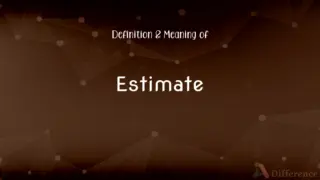
Previous Term
Estimate Definition and Meaning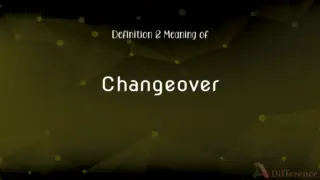
Next Term
Changeover Definition and MeaningAuthor Spotlight
Written by
Tayyaba RehmanTayyaba Rehman is a distinguished writer, currently serving as a primary contributor to askdifference.com. As a researcher in semantics and etymology, Tayyaba's passion for the complexity of languages and their distinctions has found a perfect home on the platform. Tayyaba delves into the intricacies of language, distinguishing between commonly confused words and phrases, thereby providing clarity for readers worldwide.
Co-written by
Urooj ArifUrooj is a skilled content writer at Ask Difference, known for her exceptional ability to simplify complex topics into engaging and informative content. With a passion for research and a flair for clear, concise writing, she consistently delivers articles that resonate with our diverse audience.







